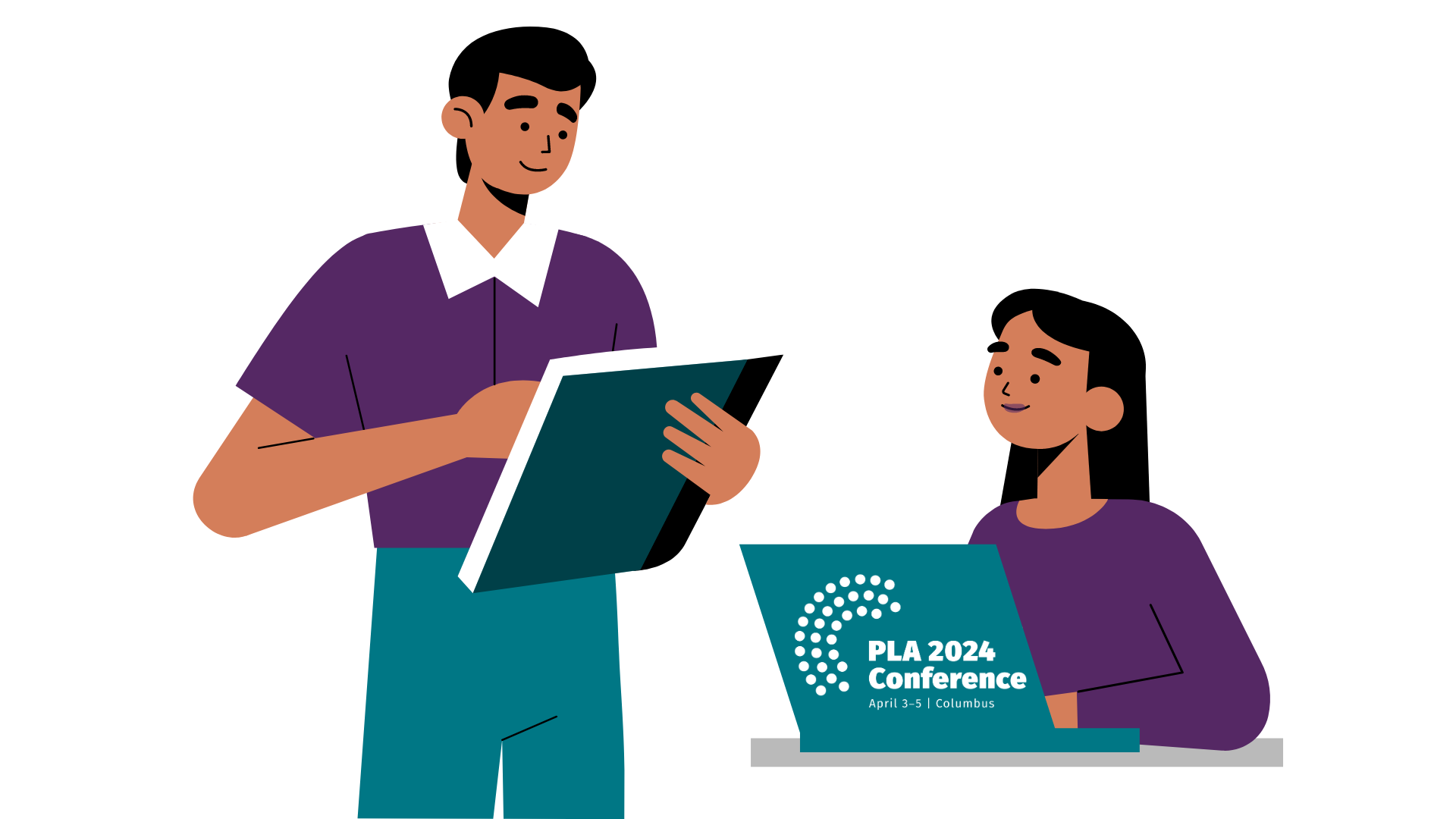Guidance for Social Work Positions at the Library

Created by the Public Library Association Social Worker Task Force
Social workers try to “meet their clients where they are.” Increasingly, people experiencing life challenges are going to the public library, therefore more libraries are bringing in social work expertise to assist these patrons. While a library/social work partnership may seem like a no-brainer, there is much for a library system to consider before partnering with a social work professional. We’d like to share some of those considerations to help you determine if a social work program could be a good fit for your library.
IMPORTANT—Every state is different. People who are trained in these fields have these skill sets but make sure your library is informed about your state’s requirements regarding position, titles, and credentialing.
FUNDING
There are three common funding scenarios:
• Grant-funded: library foundation or external;
• Contracting with a social service organization;
• General fund/Embedded: permanent position with the library.
Salary for MSWs and licensed social workers should be in line with the market, industry standards, and experience. Salary should account for required professional expenses such as licensure renewal, liability insurance, continuing education, and clinical supervision. The social worker will require a laptop computer, mobile phone, and access to a printer provided by the library or employing organization. Space should also be considered as the library social worker may need to be located where patrons will feel comfortable having private discussions and confidentiality can be maintained.
Professional Liability insurance: Given the unique nature of the library social worker’s role, it is a best practice that they carry liability insurance. Policies may be obtained through the National Association of Social Workers or other companies for an annual fee. It is recommended that the library or other employer organization cover the cost of insurance, if the scope of work is not already covered by existing library policies. Consider this expense when budgeting for a social work position.
Legal responsibility: Social workers are required to report any suspected abuse or neglect of children and/or at-risk adults, as well as threats of harm to self, others, or property. Depending on the level of licensure, social workers may be responsible for enacting involuntary mental health holds under certain criteria. These industry requirements are complex and supersede library confidentiality protocols. Social work professional requirements vary by state.
MODELS
Generally, a library’s social work model is the result of an upper-level administrative plan. If direct service is offered at one branch, the model would be focused on direct service. If the library is attempting to create an infrastructure with this program, the model would be leadership driven.
ROLES
Libraries should consider their unique needs and what they want this position to accomplish. Library social work programs vary based on the needs of a community. Community needs assessments can be particularly helpful in getting a clearer picture of a community. Sometimes, libraries have access to community needs assessments that have already been conducted by local social service agencies or universities. Other times, libraries decide to create and carry out their own community needs assessment. Generally, the roles of a library social worker are a blend of the following: staff consultations and trainings, direct patron work, and building community partnerships. Based on the identified needs of both the community and the library, social worker roles can be crafted accordingly.
There are key differences between hosting a social work intern and hiring a social work professional. The main one being that interns are students, and are learning about the field of social work; they are not experts and should not be considered experts. It’s important for interns to be supervised by a social worker when possible. When onsite social work supervision is not possible, arrangements for outside supervision must be made with the student’s university.
Social workers should provide information and referral to patrons, not case management or therapy. Similarly, social workers should not be expected to work circulation desks or provide customer service as this presents the possibility for dual relationships (e.g., I can’t tell a patron they owe the library a late fee and then expect them to come to me with a difficult issue). A former director used to say “I’m a librarian, not a social worker”—the inverse is also true.
FURTHER CONSIDERATIONS
Library leadership should familiarize themselves with the NASW code of ethics and consider the potential conflicts with the ALA code of ethics. NASW section 1.05 may conflict with ALA sections VI and VII depending on personalities, local politics, etc.
Social workers should have consistent access to a private space to meet with patrons, taking into account possible mobility challenges patrons may have. Connecting with other social workers is key, as is external supervision for embedded library social workers. Practicing social work in the library is unique work. Networking with library social workers who share similar successes and challenges is vital as well. The library should allow for and promote these opportunities.
EXPECTATIONS
Often the library’s ideas of success are not in line with the social worker’s professional measure of success. It is important to manage library staff expectations about the role of the social worker. Maintaining a client’s confidentiality is important. When the library would like to know about an interaction between the social worker and a client/patron, the social worker will need to keep the information private. Social workers operate under the premise of self-determination: the idea that a person is responsible for their own journey and their own choices. Social workers are not magicians and can’t remove patrons some may find uncomfortable.
Questions? Visit the Social Work Interest Group on ALA Connect at connect.ala.org. The Social Work Interest Group is open to all (you do not need to be an ALA/PLA member, however you may need to create a login).
Tags: social workers in public libraries







